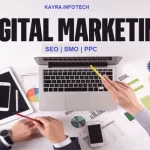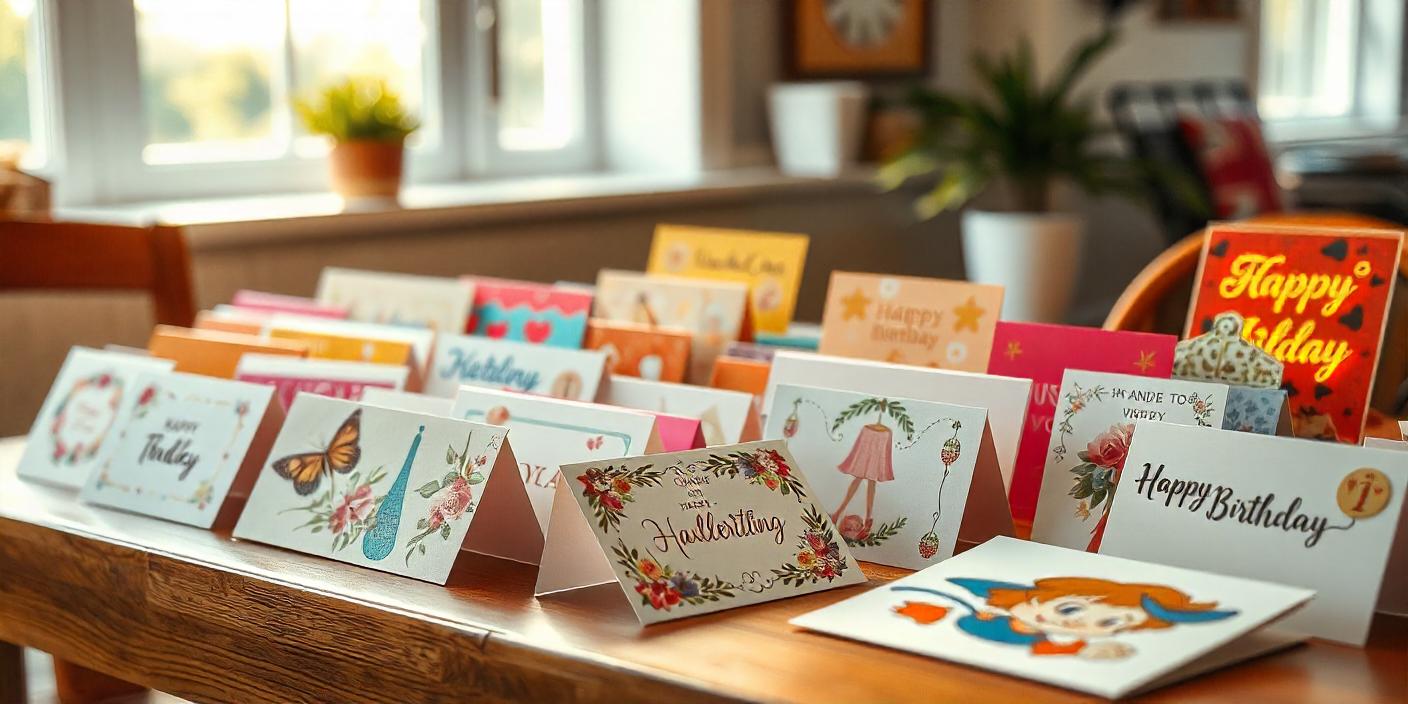In this present age, when issues like sustainability and environmental awareness are more vital than ever before, this small action of sending an ecard over a traditional paper card could really make a big difference. Ecards are just a smart, advanced alternative to traditional paper cards that save a lot of paper material and eventually align with the digital lifestyle today’s society is embracing. This elaborate article below will explore a number of those environmental benefits that one gets when they choose to send free ecards.
1. Less Paper Waste
The Amount of Paper Used
The traditional greeting card business is a massive user of paper. In the United States, consumers purchase an approximate 6.5 billion greeting cards each year. Over 2 billion tons of paper waste are generated a year. This massive volume of paper usage directly drives deforestation and depletion of the natural resource.
Ecards as a More Sustainable Choice
Ecards save paper, thereby avoiding the demand that would be placed on the paper production cycle. Of course, this means that by sending an ecard, one contributes to saving aMany e-cards avoid or reduce paper wastage and save forests. Every e-card sent is one paper card less that ultimately lands in a landfill site, which reduces environmental impact.
2. Saving Trees/Forests
The Impact of Deforestation
Deforestation is a great environmental concern. It leads to the loss of forests, a fall in biodiversity, disruption of ecosystems, and massive release of carbon. The paper industry is a major contributor to deforestation, as millions of trees are being cut down for paper production per year. The production of greeting cards is part of these statistics.
Finally, sending e-cards helps reduce the carbon footprint. One tree can produce thousands of paper cards, while at the same time, it will take years for this specific tree to grow. Sending e-cards allows one to save these precious natural resources, enabling the forests to continue and continue to support the environment with their ecosystems, through carbon fixation, water purification, and protection of habitats for wildlife.
3. Carbon Footprint Reduction
Carbon Dioxide Emissions When Using Traditional Greeting Cards
A traditional greeting card, in its very lifecycle from harvest to paper mills, printing, and transportation, adds to giant quantities of carbon emissions. Production and transport methods involve the burning of fossil fuel, releasing greenhouse gases into the atmosphere and thus speeding up climate change.
Ecards: A Low-Carbon Solution
Compared to paper cards, e-cards produce considerably lesser amounts of carbon. As they are designed, delivered and read electronically, they do not cause emission from the production and transportation of paper. The sending of e-cards entails less of a carbon footprint and serves as one of the ways in which one can help fight climate change.
4. Water Use at Its Minimal
Water Use in Paper Production
Paper production requires water in bulky amounts. In the manufacturing process, there are pulping, bleaching, and other stages that require bulk water. Nearly 20,000 gallons of water are required to produce one ton of paper, according to industry estimates.
Water Saving by Using Ecards
Ecards are entirely electronic and do not require any use of water in their production or manufacturing. So, sending an ecard can save the users several drops of water. Water, of course, which not only is very important, is also often hard to come by. This is helpful, particularly in areas under the threat or facing the challenge of water scarcity and drought.
5. Reducing the Consumption of Energy
Energy Demands of the Paper Industry
Paper is a highly energy-intensive product that takes much electricity and fuel during production. This sets up an environmental chain because both the electricity and fuel used for the energy result in air pollution and gas emissions through their extraction and burning.
Energy Efficiency of Digital Cards
The energy needed to produce and send an e-card is very small compared to the energy use of paper cards. E-cards are created on a computer and sent over the internet. Sending an e-card still uses energy, but it is a small amount. As the amount of renewable energy used increases, the carbon footprint of all digitally-based activities decreases.
6. Reduced Chemical Pollution
Toxic Chemicals in the Creation of Paper
There are such chemicals in the production process, for instance, chlorine for bleaching and inks for printing, which actually may have a harmful effect on the environment when not properly managed, leading to water pollution and pollution of the soil.
Chemical-Free Ecards
Ecards do not need any chemical treatments to be produced. A reduction in the production of such chemically treated paper would mean an ecologically friendly approach to maintaining water bodies and nature.
7. Waste management and disposal
Issue of paper waste
Traditional greeting cards, once they have been used, most probably end up in a landfill. Paper waste is the major contributing factor leading to overflow in landfills and the eventual release of methane, a powerful greenhouse gas, as the paper decomposes.
Zero-Waste Digital Cards
Ecards are zero waste in this respect. They are in digital format and therefore, no physical disposal is involved. This removes such a burden from waste management systems and plays a part in civil society not creating waste in the first place.
8. For Digital Literacy and Connectivity
Digital Literacy in the Contemporary
Sending e-cards encourages the use of digital interfaces and thus inculcates digital literacy and connectivity among individuals. The higher the level of awareness and ease with technologies, the sooner society will transition to a more sustainable approach that is paperless.
Developing Social Bonds
Ecards can be customized and sent within no time, thus ensuring that more social contacts can be kept alive and closer. The ease and speed that one may send ecards make greetings and messages to be shared in real time and hence generate a feeling of immediacy and closeness.
9. Cost-Effective and Accessible
Economic Benefits
Most ecards are either free or cost much less than traditional paper cards. Thus they become a more attractive option for a person working with certain budgetary conditions and for an organization that is cost-conscious but wants to maintain meaningful connections. Maslow says less costly ecards would encourage more frequent communication, thus stronger social bonds.
Ecards are readily accessible to any internet user, therefore being an all-inclusive means of sending greetings. This access ensures that more persons can be involved in the eco-friendly activities notwithstanding their geographical or social-economic condition.
10. Supporting Environmental Awareness
Raising Awareness through Action
People and organizations should spread the word about conservation of the environment by sending Free ecard. Every ecard sent may remind recipients about the benefits of living sustainably and encourage green living.
Corporate Social Responsibility
Businesses or organizations that use ecards can show their concern for sustainability and corporate social responsibility. It can increase their goodwill, attracting customers and stakeholders who are sensitive toward the environment.
Conclusion
The environmental benefits associated with the act include varied and infinite ranges. Starting from minimizing the wastage of paper to the conservation of natural resources, lower carbon footprints or yet lesser chemical pollution, ecards provide ways out as an eco-friendly alternative against traditional, paper-based greeting cards. If the society continues changing to the digital solutions, sending e-cards can make considerable contributions toward environmental sustainability and cultural development in a bid towards an eco-friendly society. Simple ecard-sending can enable people and businesses alike to work toward a healthier environment and a more sustainable future.




























